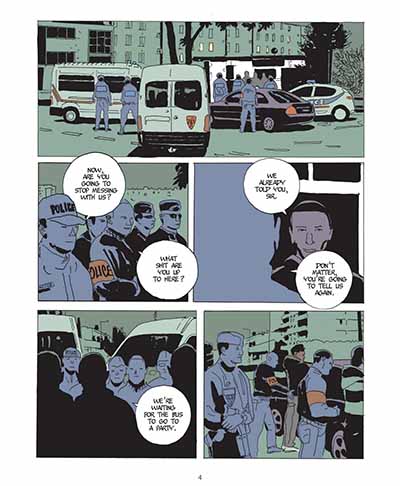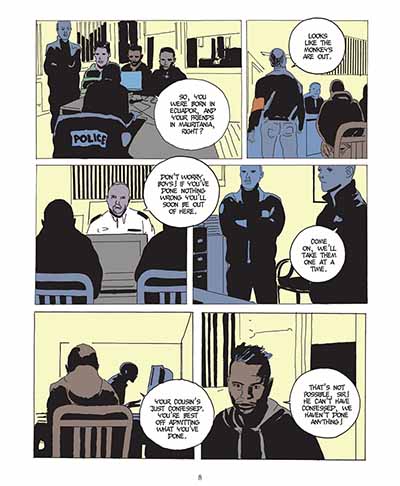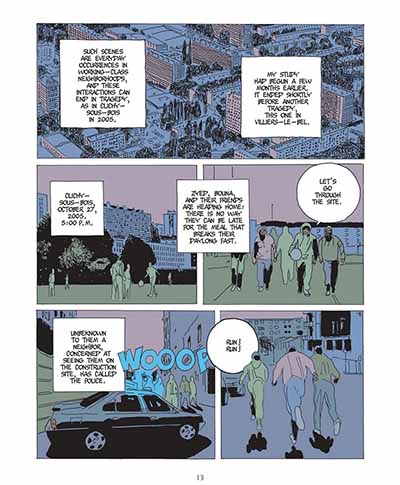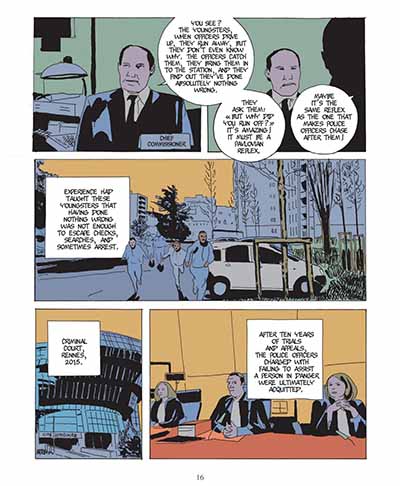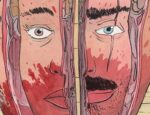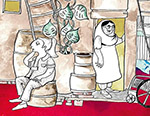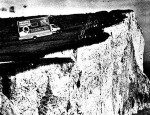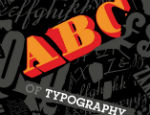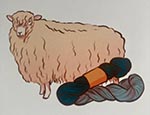The role of policing in modern society has never been under such a level of scrutiny as it is today; be it the police brutality in the States and the Black Lives Matter protests or the various scandals around the UK’s Metropolitan Police, a force that has been officially labelled as “institutionally racist, misogynistic and homophobic” in the recent Casey report. Society is fundamentally betrayed when its supposed guardians of the law are proven to be rotten to the core. The growth in discussion of alternatives to our current systems and demands to defund the police are symptomatic of the current levels of deep distrust in such organisations.
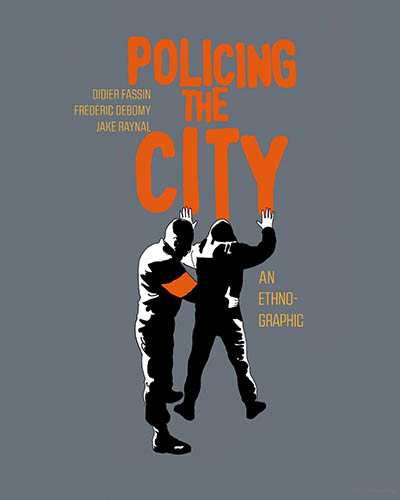
Despite its 2005-2007 origins, French sociologist and anthropologist Didier Fasson’s 15-month observational study of a Parisian anti-crime police unit in one of the city’s largest precincts still has many important takeaways about the role of the police and their place in the communities they operate within. That report was adapted into comics form by Fasson, writer Frédéric Debomy and artist Jake Raynal as Policing the City: An Ethno-Graphic, published by Other Press with an English translation by Rachel Gomme, in 2022. Its contents make for stark reading, underlining many of the undeniable problems with our current models of policing.
Policing the City begins with a prologue that sets the tone for what is to come. Three teenagers at a bus stop are randomly harassed by police officers who, without reason, take them into custody, make them endure hours of bullying and interrogation, and subject them to racial abuse before finally releasing them. What’s so disturbing here is not just the ordeal the boys experience but the casual and blasé attitude of the officers for whom this kind of behaviour is clearly just an everyday part of their routine.
Fasson’s study was sandwiched between two periods of intense unrest in the country; tragedies caused by excessive police action that, in the wake of the lives lost, resulted in rioting, victim-blaming, and governmental deflection. His subjects for this research were the BAC (Brigade Anti Criminalitie), a police section operating in mostly working class areas, known for a level of over-zealousness that was overlooked because of the quota-busting number of arrests they made.
What Fasson discovers in these months is a police force that has little but contempt for the residents of its jurisdiction based on their ethnicity. It’s a frightening insight into the self-perpetuating realities of policing. Arrest quotas must be met which leads to officers illegally stopping and searching innocent people, which in turn leads to justifiable resentment and fear of supposed law-enforcement official who are acting as anything but. It gives rise to a culture of racial profiling, a police force made up of officers from backgrounds that ensure a level of inherent prejudice, and policing that is no longer in the service of the people but the service of the government. Problem-solving becomes sacrificed to the generation of conflict in pursuit of arrests.
Fasson and Debomy’s account is a succinct distillation of what the former observed in his time following the BAC and breaks down the issues with great clarity and thought into a very digestible 100 pages of graphic journalism. What works particularly well here is the way in which the narrative constantly shifts back and forth from the anecdotal to the analytical, allowing the reader to be immersed in the reality of events before the following commentary gives extra reflections on what we have just witnessed. Jake Raynal’s visuals with their dark, moody and evocative use of colour are a most appropriate mirroring of the grimness of the subject matter. There’s a powerful humanity to his pages that is all the more affecting for its subtle understatement.
A 10-page epilogue follows up on developments in policing since Fasson’s original study and the socio-political reasons behind them. Spoiler warning: it makes for very sombre reading. Eye-opening, pertinent and undeniably relevant, Policing the City is a book that will raise questions that will not be answered until we totally re-evaluate the way we think about policing in society.
Didier Fasson & Frédéric Debomy (W), Jake Raynal (A), Rachel Gomme (T) • Other Press, $25.99
Review by Andy Oliver





